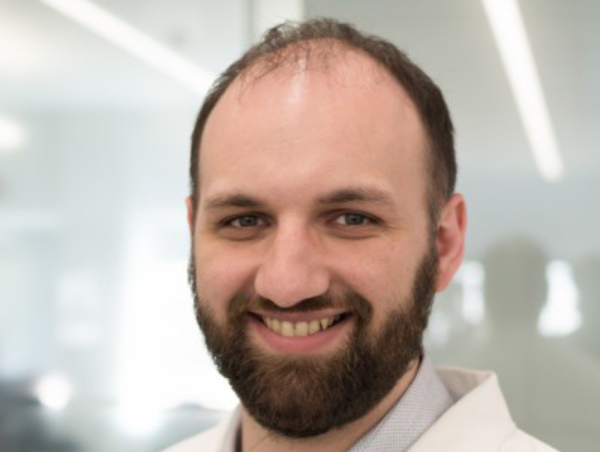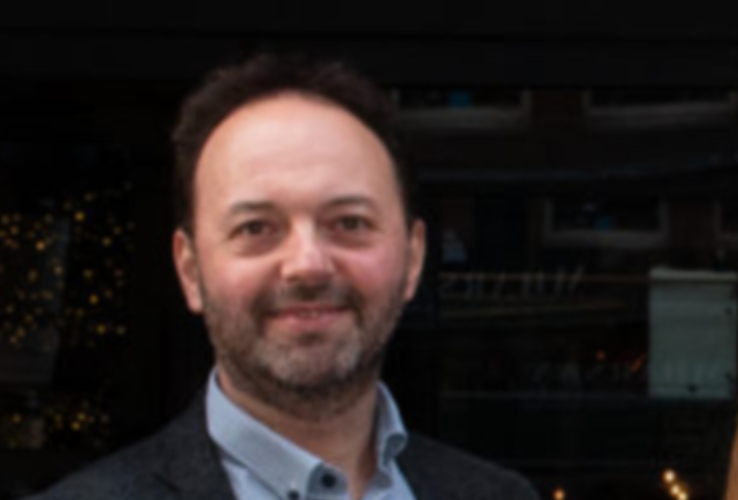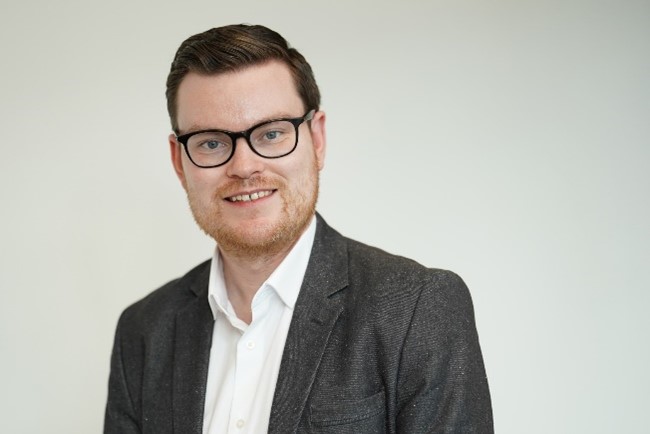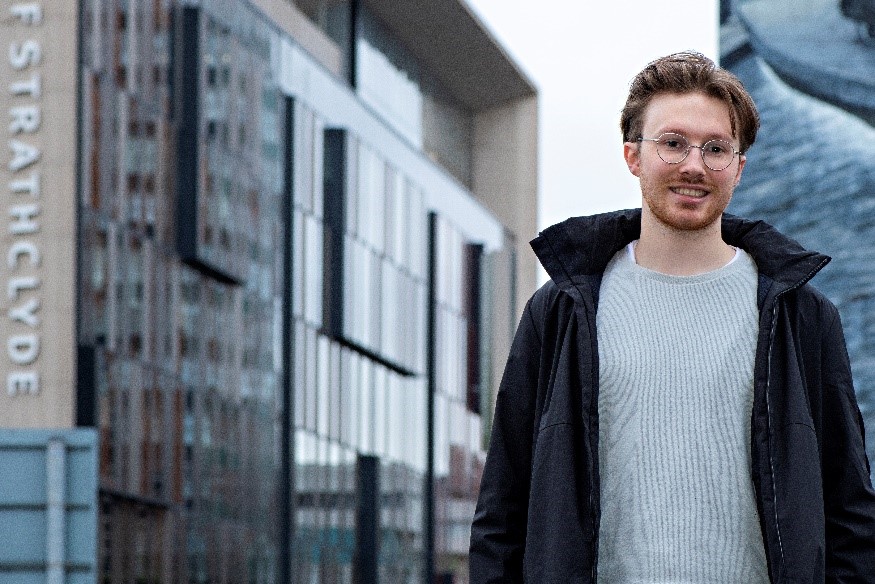Graduates of the Inspire Accelerator are eligible to seek SIEF investment. SIEF bridges the early-stage funding gap by providing investments alongside third party, lead investors to University-related enterprises. As well as equity investments, companies may have the option of accessing funds as a convertible loan or receiving an advanced subscription to give them, capital to cover very early start-up costs. Investment from SEIF is available to companies set up by Strathclyde students, staff and alumni and it is an evergreen fund, so returns from investments are recycled and re-invested, and contributions to the Fund, including our alumni, are made on a donation and not-for-profit basis.

Stephen Young Institute Strathclyde Inspire Entrepreneurs Fund

Dr Declan Bryans LIND Ltd, £40K Investment, Dec 2023
LIND, a pioneer in alternative battery storage systems which is focusing on introducing ground-breaking battery technology designed to operate efficiently at elevated temperatures.
Pioneering research
Founded in 2019, LIND has collaborated closely with the University on pioneering electrochemistry research. The company's headquarters are in Kinross, where their experts are advancing alternative battery and heating products, and they also have a laboratory on the Strathclyde campus, within the Glasgow City Innovation District.
Unlike conventional lithium-ion batteries, LIND's innovative battery technology has a lifespan of more than 20 years. It is precisely engineered to excel in hot climates and heating systems, offering a non-toxic and scalable solution for domestic households and large industrial applications.
Dr Declan Bryans, Chief Technology Officer at LIND, said: "We are excited about the possibilities this investment opens up for us. With our partners' support, we can expedite our research and development, introducing innovative energy solutions to the market. This technology benefits our end-users by empowering them to lower their environmental footprint and rewards them with substantial savings on their energy bills, fostering a greener and more economically sustainable future."
Supporting entrepreneurs
Director of Innovation & Industry Engagement at the University of Strathclyde, Meryl Levington, said: "We are proud to support LIND's growth and ambitions through our Strathclyde Inspire Entrepreneurs Fund and Stephen Young Entrepreneurship Awards, alongside our investment partners.
“It is an exciting spin-in company and underlines Strathclyde's commitment to supporting entrepreneurs and innovative companies who make a positive difference."

Dr Michele Zagnoni, S3D-Chip Technology £65k Investment, July 2023
A Strathclyde spin-out company, S3D has developed a high-throughput screening platform that promises to revolutionise 3D tumour modelling, enabling large-scale and rapid live-tumour sample testing at low cost for the first time. The Investment will be used to progress the development of the screening platform.

Stuart Hannah Microplate DX - £50k investment in April 2022
University of Strathclyde spinout company, Microplate Dx Limited, has secured seed funding for its game-changing diagnostic test, which aims to detect antimicrobial resistance (AMR) by testing for the right antibiotic for patients, in less than 40 minutes.
The company has completed an initial pre-seed investment of more than half a million pounds, with outline agreement of a seven-figure seed round follow-on, supplemented by the Strathclyde Inspire Entrepreneurs Fund (SIEF), with significant contribution from the Stephen Young Entrepreneurship Award for Emerging Entrepreneurs.
Microplate Dx is an innovative, award-winning diagnostics company, recently spun out from the University of Strathclyde, Glasgow. Microplate Dx specialises in developing proprietary, platform-based products for rapid antibiotic susceptibility testing (AST), helping tackle the major global threat to public health of antimicrobial resistance (AMR), currently responsible for ~1.2 million deaths p/a, and estimated to account for 10 million deaths annually by 2050, more than cancer and diabetes combined, unless radical action happens now.
Dr Stuart Hannah, Microplate Dx CEO says “The Stephen Young Entrepreneurship funding awarded to Microplate Dx will have a transformative effect on our business in several ways. The funding will enable us to perform crucial product development activities including scaling up the first Microplate Dx product to tackle urinary tract infections and perform related clinical testing on the device with the NHS. It will also enable Microplate Dx to undertake pivotal regulatory activities and perform deep-dive studies into clinical positioning and route-to-market, crucial to future widespread health service adoption. We have also been able to use this award to leverage additional R&D funding for the business, helping accelerate our product development and ultimate commercialisation.
Microplate Dx aims to become a world leader in rapid, antimicrobial resistance-tackling diagnostics at the point-of-care, and this award is testament to the hard work and traction we’ve had to date. The award takes us another step towards achieving our vision of providing ‘personalised antibiotic prescribing’ for patients, helping drastically reduce the major global health threat that is antibiotic resistance, and saving countless lives as well.”
“The Stephen Young Entrepreneurship award makes a real difference for the new generation of bold innovators. Microplate Dx has already been through a rigorous stage gated commercialisation process at the University. The company has potential for significant impact on one of the global healthcare challenges. The funding from the award will help to solidify its commercial viability and I am excited to see this Strathclyde spin-out entering the field of infection diagnostics.”
Olga Kozlova, Director of Innovation and Industry Engagement, University of Strathclyde

Fergal Mackie, Metacarpal Ltd - £30k investment, April 2022
Metacarpal are developing a new kind of upper-limb prosthesis, which promises better function, cost and cosmetics. Metacarpal used the Stephen Young Awards to fund an exciting project producing the first Metacarpal prototype to be made from end-quality materials and manufacture processes. This device will be fitted and trialled on an amputee, aiding Metacarpal’s evaluation of the current prototype.
When graduates Fergal Mackie and James Swinburne came up with the concept of a cutting-edge and affordable user-friendly robotic prosthetic hand, they assumed the project would be a part time concern as engineering careers beckoned.
But when the world went into lockdown just months after they graduated from the University of Strathclyde, the pair focused all their energies on their design.
Metacarpal, the company they co-founded to create a robotic hand for amputees, has since gone from strength to strength and has secured investment and grant funding totalling £270,000, including £30,000 from the Stephen Young Entrepreneurship Awards via Strathclyde Inspire Entrepreneurs Fund (SIEF).
But Fergal, 25, who is now the company’s Managing Director after James left to pursue a career in product design, says had it not been for lockdown, they may never have had the opportunity to focus on the project.
The pair met as students and took part in The Strathclyde Inspire Accelerator, which helps staff and students fast-track opportunities through the provision of advice, funding and bespoke training opportunities.
It was there they came up with the ‘Aurora’ hand, when their research revealed that some of those with limb loss found electronic devices difficult to operate. There are significant benefits to omitting electronics, yet there have been no major improvements on body-powered designs since their inception more than a century ago.
Fergal, a graduate from Strathclyde’s Design Manufacturing and Engineering Manufacturing department, said After graduation we both thought this would be a project in the background as we got jobs, but with the advent of COVID-19 we were both put on furlough. We were getting paid and had time on our hands and barely anyone was recruiting in the product design sector, so it made sense to put all our attention on this project and we turned this into our focus.”
Fergal took on two jobs, including as delivery driver to help fund the project, and said: “All I was doing was working on the company and working at night delivering food, it was a flexible job but draining.”
Fergal said “We initially thought of going down the route of developing an electronic, robotic hand.
“They look really cool but the feedback we were getting was that although the electronic ones could do lots, the operation is difficult for amputees. We tested the hand with a friend and knew we were onto something when he was ecstatic and liked the idea.
“James decided to leave the company as he is a design engineer at heart. It was difficult but I honed the business message and the business plan and pitched for more investment.”
The Metacarpal product is currently in the prototype phase but the investment enables the company to take the product from proof of concept through to commercialisation and launch, with the next step to expand the design team.
"It’s been hard work, but I’m excited as to what’s ahead and I’m thrilled to be among the first recipients of a Stephen Young award.”
“Metacarpal are a very worthy recipient of a Stephen Young Entrepreneurship award and I know they will benefit hugely from this gift.”
Professor Sir Jim McDonald, Principal and Vice-Chancellor at Strathclyde
“Metacarpal are a truly innovative company with a mission to provide an affordable body-powered prosthetic hand, which ultimately improves the long-term health outcomes for users. Based in Scotland but with global ambitions, Metacarpal aligns perfectly with Strathclyde’s aim of being a socially progressive technological university. We support high growth potential, innovative companies capable of delivering global, positive and inclusive impact with responsible investments and look forward to working with Fergal and his team through the next stages of the ambitious journey, alongside co-investors and partners.”
Dr Poonam Mailk, Head of Investments at the University of Strathclyde
Bionic or myoelectric hands have changing grips and can do a lot of the functions of a real hand, but when actually using this device, it can be slow and unreliable, hampering the utility.
More than half of UK users prefer body-power, with split hooks being the most popular devices.
Although simple and only a single grip, these are reliable and easy to use – making them the most functional device currently.
Metacarpal’s unique product uses body-power technology and is also able to switch between grips like a bionic hand and uses the same cosmetic and is cheaper to buy and quicker and easier to use.
Traditional prosthetics can have a high abandon, with the user instead opting to go without the use of the limb entirely. Not using prosthetics often leads to overreliance on the remaining limb which can quickly develop into debilitating arthritis and other ailments, highlighting the need for good prosthetics.
Stay in touch
The Business School Blog
Latest Newsletter
Join us on LinkedIn
Follow us on X
Join us on Facebook
Visit our YouTube channel
Follow us on Instagram
Follow us on Bluesky
Contact details
Undergraduate admissions
+44 (0)141 548 4024
sbs-ug-admissions@strath.ac.uk
Postgraduate admissions
+44(0)141 553 6116/6105/6117
sbs.admissions@strath.ac.uk
Address
Strathclyde Business School
University of Strathclyde
199 Cathedral Street
Glasgow
G4 0QU
